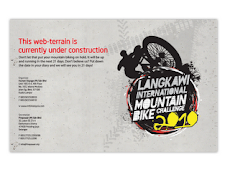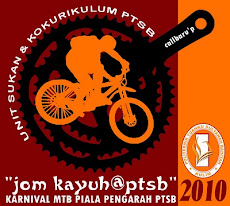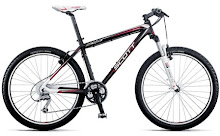SRAM or Shimano? - Is One Drivetrain Better Than Another?
Both Shimano and SRAM have been making front and rear derailleurs, chains, shifters, and cassettes for some time now. You can find both systems on different bikes at just about any shop, but really should you choose a bike based on the drivetrain brand?
Answer:
Both SRAM and Shimano drivetrain system work quite well. It is clear you can adjust both systems to work reliably and consistently.
Both systems also have comparable product levels with X-0, X-9, X-7 and so forth for SRAM and XTR, XT, LX and on down for Shimano.
There are little compatibility issues between any bike and any drivetrain system. However, in the past, I have recommended SRAM rear derailleurs for FSR style suspension frames to avoid some annoying knock issues. Some new Shimano derailleurs (2008 models) have fixed this issue.
There is however no compatibility between the SRAM 1:1 shifting system and the Shimano 2:1 system. You can't use SRAM 1:1 shifters with Shimano derailleurs, and you cannot use SRAM 1:1 derailleurs with Shimano shifters.
SRAM X9- Rear Deraulier
I have to admit I am a slightly bigger fan of the SRAM system. It all started with the FSR suspension issue mentioned above, but I have also found that I like the 1:1 system. It is slightly less susceptible to cable stretch issues, and I find it a little easier to adjust for the first time and to keep adjusted over the long term.
Shimano Deore Rear Deraulier
In reality, after years of development, both systems are quite good and I wouldn't let the shifter/drivetrain question decide what bike you should get unless you prefer the way one feels over the other.
Question 2:
Should I Get Disc Brakes or Rim Brakes? - What System Will Weigh More
Answer:
There are two quick and dirty answers to the disc brake or rim brake question:
One,
If you want better, more consistent brake performance in all conditions and don't really care if it weighs a little more or costs a little more, choose disc brakes over rim brakes.
Two,
if you want the lightest set-up you can have, and are willing to accept small variances in brake performance, or if a low price is really important, choose rim brakes over disc brakes.
Shimano V-brake
In a little more detail. Mountain bike rim brakes have gone through several design changes over the years. They started with the original cantilever brakes, went through the dark U-Brake years, and are now known as V-Brakes. V-Brakes work well in most conditions.
Rim brakes have some drawbacks. They require straight un-damaged rims to perform their best. Rim brakes perform poorly in wet or muddy conditions. Over time, Rim brakes can wear right through the side of your rim literally causing the side of the rim to blow off (I've seen this happen and its not pretty.).
Disc brakes have been around for a long time in cars but weren't seriously used on bikes until the mid to late 90's. There were definitely some issues with some of the earlier models but the disc brakes of today, cable actuated or hydraulic, perform quite well.
Shimano Disc brake
The performance of disc brakes is considerably better than rim brakes. Especially in wet or muddy conditions. Disc brakes usually require less force to apply and aren't effected by rim/wheel condition.
The biggest downside to disc brakes is the added weight. By the time you add everything in, including front and rear brakes and the added weight of the disc specific hubs, you end up with around 150 to 350 grams additional weight to the whole bike. This weight number greatly depends on the wheels, rims, hubs, and disc brake system you choose.
Cost is certainly an issue as well. Disk brake systems are usually more expensive compared to rim brakes. Mechanical or cable actuated disc brakes are a closer match but will still cost a little more. Hydraulic disc brake systems can cost significantly more.
To switch from one system to the other you will in most cases not only have to buy the new set of brakes but you will have to buy a new wheelset as well. Disc rims usually cannot be used with rim brakes and the standard hubs that are used with rim brake wheels usually cannot be used with discs.
The trend in the industry is certainly towards discs and the technology is improving every year.
Personally, I will never go back to rim brakes on my own bike. For me, the consistent performance and non-rim-dependent nature of discs is well worth the added weight.












































































































No comments:
Post a Comment